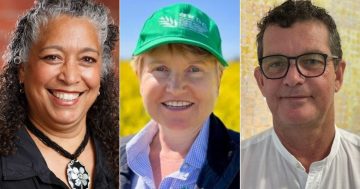 1. This week 10 years ago, Australian Public Service Commissioner, Steve Sedgwick issued a warning to PS staff to take care engaging in public policy debates, particularly on social media and internet blogs.
1. This week 10 years ago, Australian Public Service Commissioner, Steve Sedgwick issued a warning to PS staff to take care engaging in public policy debates, particularly on social media and internet blogs.
Mr Sedgwick warned that in providing views, staff must remain apolitical and preserve the trust of the public, the Government, and alternative governments.
“APS employees are entitled to their own views like any other citizen,” Mr Sedgwick said.
“However, in expressing their views, they are held to the standards of conduct laid down in the APS Values and Code of Conduct.”
2. Employees of the Australian Public Service would enjoy greater workers compensation coverage following the passage of the Safety, Rehabilitation Compensation and Other Legislation Amendment Act (SRCOLA) through both Houses of Parliament.
It extended workers compensation to staff taking “recess” breaks away from the workplace during working hours.
Among other changes, SRCOLA also enabled Comcare to access the Consolidated Revenue Fund to pay compensation relating to diseases with long latency periods where employment dated from before 1 December 1988, but the disease did not manifest until after that date.
It also extended coverage of the Act to Commonwealth employees working in declared high-risk countries.
3. Aboriginal Affairs Victoria (AAV) won the People and Community category of the Asia-Pacific Spatial Excellence Awards for its Aboriginal Cultural Heritage Register and Information System (ACHRIS).
Victorian Minister for Aboriginal Affairs, Jeanette Powell said ACHRIS was a state-of-the-art web-based tool that integrated Aboriginal heritage data-mapping capability and allowed stakeholders to spatially search the register.
“ACHRIS has improved the management of and access to Aboriginal cultural heritage records across Victoria, which in turn provides greater protection for Victoria’s rich and diverse Aboriginal cultural heritage,” Mrs Powell said.
4. South Australian Minister for Water and the River Murray, Paul Caica announced that exploration projects to investigate groundwater sources that might support sustainable development in the State’s Far North were under way.
Mr Caica said South Australia needed a secure water supply to sustain industrial development critical for future economic growth.
“The FLOWS [Finding Long-term Outback Water Solutions] initiative will increase our knowledge of the region’s water resources including their capacity, quantity and quality,” Mr Caica said.
He said the initiative would also benefit the environment, with a greater ability to feed information back into regional planning processes.
5. In Queensland, a high-tech, six-month pilot program informing bus travellers of the progress of their bus began in Cairns.
Minister for Transport, Annastacia Palaszczuk said the entire Sunbus fleet had been fitted with GPS and 3G modems, relaying real-time information on service locations at 25-second intervals to electronic bus stop displays across Cairns, and to an online tracking tool.
“[This] will give commuters increased confidence in the usability and reliability of public transport,” Ms Palaszczuk said.
“Real time will make catching public transport easier by providing accessible and current bus location information,” MP for Cairns, Desley Boyle said.
6. Also in Queensland this week a decade ago, the State’s first trial of electric vehicles (EVs) began with five households in Townsville.
Minister for Energy, Stephen Robertson said each of the selected participants would get behind the wheel of a Mitsubishi i-MiEV for up to eight months.
“Ergon Energy will record EV electricity consumption to see how it impacts on the neighbourhood’s electricity network to determine ways to prepare for and enable potential mass take-up of electric vehicles,” Mr Robertson said.
“The trial will also determine appropriate ways Ergon Energy can work specifically with its customers to facilitate electric transport.”




